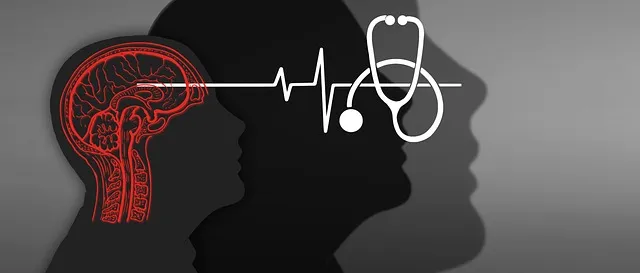The Kaiser Inpatient Mental Health Broomfield Program offers advanced care and holistic wellness through emotional healing, mindfulness, and engaging activities. Accurate mental illness diagnosis is a challenge due to subjectivity and co-occurring conditions, requiring multi-faceted solutions like advanced technology, evidence-based practices, policy reforms, and increased awareness. Kaiser's Broomfield services use technology and tailored care to enhance diagnosis accuracy, empowering patients with lasting coping mechanisms for improved mental health outcomes.
Mental illness diagnosis accuracy is a critical aspect of patient care, yet it remains challenging. This article explores efforts to improve diagnostic precision through an in-depth look at the Kaiser Inpatient Mental Health Broomfield Program—a pioneering initiative focused on enhancing mental health treatment. By examining current challenges, such as complex presentations and comorbidities, we uncover innovative strategies including advanced assessment tools and multidisciplinary teams. Understanding these approaches is crucial for healthcare providers aiming to optimize diagnostic accuracy, particularly in light of organizations like Kaiser’s commitment to inpatient mental health services.
- Understanding the Kaiser Inpatient Mental Health Broomfield Program
- Current Challenges in Diagnosing Mental Illness Accurately
- Strategies and Innovations to Enhance Diagnostic Accuracy
Understanding the Kaiser Inpatient Mental Health Broomfield Program

The Kaiser Inpatient Mental Health Broomfield Program stands as a beacon of hope and advanced care for individuals grappling with mental illness. This innovative initiative focuses on providing comprehensive, state-of-the-art treatment within a supportive and specialized environment. By integrating various therapeutic modalities, such as emotional healing processes and mindfulness meditation, the program aims to restore balance and enhance mental wellness.
The program’s holistic approach extends beyond individual therapy sessions, incorporating engaging activities like Mindfulness Meditation to cultivate inner peace and self-awareness. Additionally, Kaiser offers a Mental Wellness Podcast Series Production, providing valuable insights and sharing inspiring stories that promote understanding and resilience. This multi-faceted strategy ensures patients not only receive expert diagnosis but also develop lasting coping mechanisms for optimal mental health.
Current Challenges in Diagnosing Mental Illness Accurately

Mental illness diagnosis accuracy has been a subject of growing concern within healthcare systems, including those offered by organizations like Kaiser in Broomfield. Challenges arise from multifaceted factors, such as the complexity and subjective nature of mental health conditions, the need for comprehensive assessments, and the potential for bias or miscommunication during diagnostic processes. The current landscape often struggles to differentiate between various disorders, especially when co-occurring conditions are involved, leading to misdiagnoses and inadequate treatment plans.
Additionally, the pressure to streamline diagnosis in emergency settings, as provided by Crisis Intervention Guidance, can result in oversimplification. This may hinder the thorough evaluation required for precise mental illness identification, particularly in acute situations where Coping Skills Development is a priority. Improving diagnostic accuracy demands a multifaceted approach, incorporating advanced training for healthcare professionals, evidence-based assessment tools, and policy reforms that prioritize Mental Health Policy Analysis and Advocacy to ensure better support for individuals navigating their mental health journeys.
Strategies and Innovations to Enhance Diagnostic Accuracy

Improving mental illness diagnosis accuracy involves a multi-faceted approach leveraging cutting-edge strategies and innovations. One key initiative is the integration of technology, such as advanced diagnostic tools and artificial intelligence algorithms, which can analyze vast amounts of data to detect subtle patterns indicative of specific mental health conditions. For instance, Kaiser’s inpatient mental health services in Broomfield utilize these technologies to enhance accuracy, ensuring patients receive appropriate care tailored to their unique needs.
Additionally, focusing on evidence-based practices like Inner Strength Development and Mind Over Matter Principles has proven effective. By promoting resilience and coping mechanisms, these approaches empower individuals to better manage their symptoms. Coupled with increased Mental Health Awareness through educational programs and community outreach, these strategies collectively contribute to a more precise and holistic understanding of mental health, ultimately improving diagnostic accuracy and patient outcomes.
The Kaiser Inpatient Mental Health Broomfield Program offers a promising approach to enhancing mental illness diagnosis accuracy, addressing critical current challenges. By implementing innovative strategies, such as evidence-based assessment tools and multidisciplinary teams, this program sets a benchmark for improved patient care. As the does Kaiser have inpatient mental health Broomfield initiative gains traction, its impact on diagnosing mental health conditions accurately and effectively could revolutionize healthcare, ensuring better outcomes for those seeking treatment.






